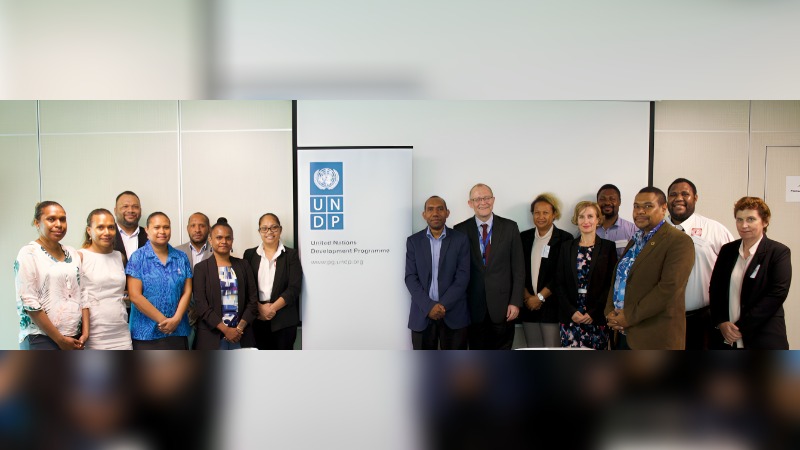In commemoration of International day for Universal Access to Information, Transparency International PNG (TIPNG) alongside the UNDP PNG Anti-Corruption Project co-hosted a discussion on progressing the Right to Information Policy and legislation in PNG with the theme, the “Importance of the Online space for Access to Information.”
The roundtable enabled representatives from DICT, PNG Open Government Partnership Secretariat, Media Council of PNG, UNDP and TIPNG to discuss the status of accessing public information and also how to overcome challenges that may impact the development of the Right to Information Policy and Law.
The following commitments were made during the roundtable discussion:
· Department of Information and Communication Technology will commence public regional consultation on the draft National RTI Policy in October 2023 with the support of UNDP.
· Once the consultation is completed and feedback is incorporated, the Department of ICT aims to finalize the policy for cabinet endorsement in Quarter 4 of 2023.
· Following the development of the Policy, the Government is committed to commence drafting of RTI Legislation for Papua New Guinea in Quarter 1 of 2024.
According to the discussion, the Right to Information (RTI) can be defined as the right of all persons to access information held by public bodies.
It is also referred to as “the right to know “, “Freedom of Information” or “Access to Information.”
Right to Information reflects the principle that all information – except some justified examples such as privacy, national security, or harm to the public interest – held by governments and other public institutions, is public information and should be available to the public.
Equal and Universal Access to Information is essential to promote human rights and dignity, eradicate poverty, and build inclusive knowledge societies.
The International Day for Universal Access to Information aims at spreading awareness concerning the need to expand laws related to information and their actual implementation. The expansion of these laws helps in building inclusive institutions to access the world.
To date, 129 countries have access to information laws (or freedom of information laws) and over 50 constitutions worldwide recognize this as a right, along with much jurisprudence confirming it.
Papua New Guineans are guaranteed “reasonable access to official documents” under Section 51 of the National Constitution, which also calls for provision to “be made by law to establish procedures by which citizens may obtain ready access to official information.”
This constitutional right to Freedom of Information, is also supported by international, regional, and domestic commitments made by the Government of PNG to enact a Right to Information (RTI) Law, most notably through the Open Government Partnership (OGP) process.

